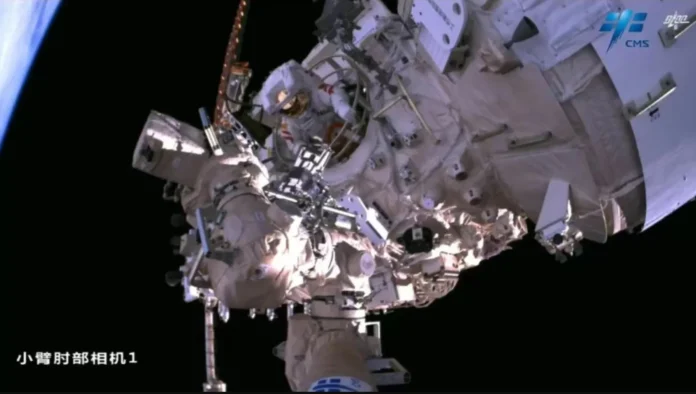China has taken a major step forward in their space exploration endeavors with the selection of two teams to develop low-cost space station cargo spacecraft. This decision, announced by the China Manned Space Engineering Office (CMSE), reflects their determination to keep pace with other leading space agencies such as NASA.
The two proposals, chosen from a pool of 14, will be responsible for designing and building spacecraft capable of delivering essential supplies to China’s space station. This is a crucial need for the country as they plan to launch their first module of the space station next year and complete its construction by 2022.
The CMSE has not revealed the names of the two selected teams, but they have given some details about their proposals. One team will be using a reusable cargo spacecraft, while the other will be developing a new type of cargo ship. Both teams have been given a tight deadline of two years to complete their projects, which is a challenging task but also a testament to the capabilities of Chinese scientists and engineers.
This move by China is not surprising, as it follows in the footsteps of NASA’s Commercial Resupply Services (CRS) program. Under this program, private companies are contracted to provide cargo services to the International Space Station (ISS). It has been a successful venture for NASA, with SpaceX and Northrop Grumman currently fulfilling their CRS contracts.
The Chinese space agency has also been actively involving private companies in their space missions. In 2018, they launched their first private satellite, and earlier this year, a Chinese private rocket was successfully launched and reached orbit for the first time. The selection of private companies for the development of low-cost space station cargo spacecraft is another significant step in this direction.
The use of commercially developed spacecraft will not only save money for the Chinese space program but also bring new ideas and innovations to the table. This will not only benefit China but also the global space industry, as new technologies and techniques will be developed in the process.
This move by China also highlights the growing competition in the space industry. With countries like the United States, Russia, and China all vying for dominance in space, the development of low-cost space station cargo spacecraft is a crucial element in this race. It will give China an edge in terms of cost-effectiveness and efficiency, which will further cement their position as a leading space power.
The decision to develop low-cost space station cargo spacecraft also aligns with China’s long-term plans for space exploration. They have already announced their intention to send astronauts to the moon and establish a permanent base there by 2036. This will require regular resupply missions to the moon, and the technology developed for the low-cost cargo spacecraft can be utilized for this purpose as well.
China’s progress in the field of space exploration has been remarkable. They are the only country, along with the United States and Russia, to have successfully landed a spacecraft on the moon. They have also sent a rover to explore the far side of the moon, a feat never achieved before. With the selection of two teams to develop low-cost space station cargo spacecraft, China is once again showing their determination to push the boundaries of space exploration.
The selection of private companies for this project also highlights China’s efforts to involve the private sector in their space program. This not only fosters innovation but also creates new job opportunities and boosts the economy. It is a win-win situation for both the government and the private sector.
In conclusion, China’s decision to choose two teams to develop low-cost space station cargo spacecraft is a significant step in their space exploration journey. It shows their determination to keep pace with other leading space agencies and their commitment to utilizing the potential of the private sector. This move will not only benefit China but also contribute to the advancement of the global space industry. We can only wait and see what groundbreaking achievements await us in the future as China continues to make bold strides in space.

